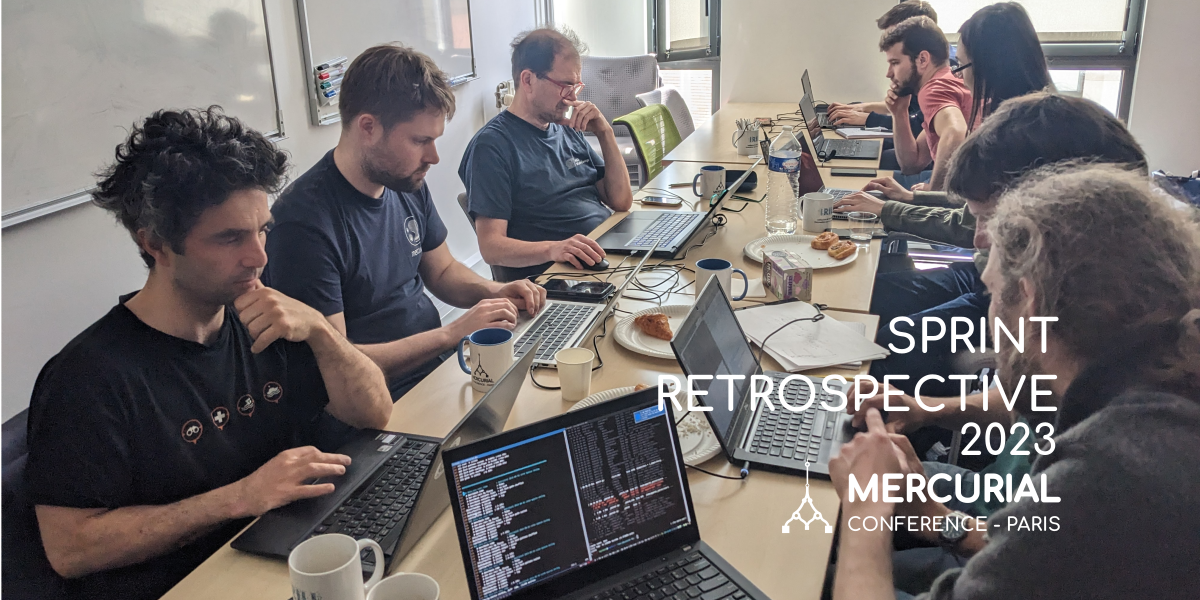
Mercurial Paris conference 2023 sprint
Mercurial community sprint day for hacking on the Mercurial version control system, Evolve extension, Heptapod devops platform, documentation and tooling.
The last day of the Mercurial Conference Paris 2023 was dedicated to the community getting together to move the project forward. Eight people gathered to work on various topics.
Raphaël Gomes (Octobus) and Axel Prell (Orbeet) worked on improving alternative log templates. They also spent some time stabilizing part of the test suite and improving the information provided by the CI jobs.
Hermann Lauer (IWIR) worked on updating his Mercurial installation and repository formats. He also spend time getting familiar with some of the new features he discovered during the conference.
Manuel Jacob worked on making it possible for clients to request changesets hidden by obsolescence when pulling. This will be very useful for gathering more information when solving divergence, or when investigating other issues that may arise from distributed history rewriting. That series was actually started at the previous Mercurial.Paris conference, in 2019 before it got lost in the chaos of the pandemic. It has now been dusted, finalized and the feature will be available in Mercurial 6.5.
Pierre Augier (LEGI) worked on his newer version of the Mercurial Book, based on a jupiter notebook.
Zeger Van de Vannet (Nokia) improved the templatability of the "diffstat" information, that summarizes the changes made to files by a changeset.
Mathias de Maré (Nokia) implemented a way to retrieve pre-computed bundles directly through the Mercurial protocol. While this offers less load-balancing capabilities than the usual HTTPS based distribution, it massively simplifies the deployment of the clone bundle feature in environments that need advanced authentication schemes.
Pierre-Yves David (Octobus) finalized some improvements to the performance of large matcher expressions and supported the work of Manuel, Mathias and Pierre.
Thanks to everyone involved and extra thanks to IRILL, the Center for Research and Innovation on Free Software, for hosting us in their Sorbonne University office.
We are looking forward to the next community sprint later this year.